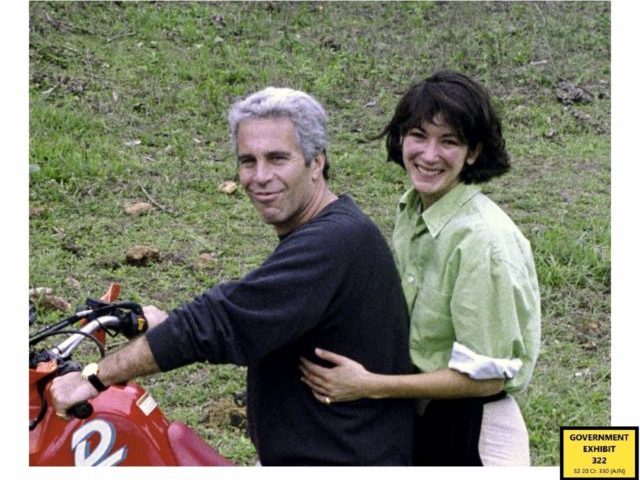NEW YORK (AP) — From the moment he first faced criminal charges, in 2006, Jeffrey Epstein has been the object of public fascination, conspiracy theories and outrage — especially after his lawyers got prosecutors to agree to a lenient plea deal that spared him from serious prison time.
Epstein was eventually arrested again, but died by suicide while awaiting trial in 2019. Here is a timeline of the case against him and his former girlfriend, Ghislaine Maxwell, who was sentenced Tuesday to 20 years in prison for helping him abuse teenage girls.
___
March 2005: Police in Palm Beach, Florida, begin investigating Epstein after the family of a 14-year-old girl reports she was molested at his mansion. Multiple underage girls, many of them high school students, would later tell police that Epstein hired them to give sexual massages.
May 2006: Palm Beach police officials sign paperwork to charge Epstein with multiple counts of unlawful sex with a minor, but the county’s top prosecutor, State Attorney Barry Krischer, takes the unusual step of sending the case to a grand jury.
July 2006: Epstein is arrested after a grand jury indicts him on a single count of soliciting prostitution. The relatively minor charge draws almost immediate attention from critics, including Palm Beach police leaders, who assail Krischer publicly and accuse him of giving Epstein special treatment. The FBI begins an investigation.
2007: Federal prosecutors prepare an indictment against Epstein. But for a year, the money manager’s lawyers engage in talks with the U.S. attorney in Miami, Alexander Acosta, about a plea bargain that would allow Epstein to avoid a federal prosecution. Epstein’s lawyers decry his accusers as unreliable witnesses.
June 2008: Epstein pleads guilty to state charges: one count of solicitating prostitution and one count of soliciting prostitution from someone under the age of 18. He is sentenced to 18 months in jail. Under a secret arrangement, the U.S. attorney’s office agrees not to prosecute Epstein for federal crimes. Epstein serves most of his sentence in a work-release program that allows him to leave jail during the day to go to his office, then return at night.
July 2009: Epstein is released from jail. For the next decade, multiple women who say they are Epstein’s victims wage a legal fight to get his federal non-prosecution agreement voided, and hold him and others liable for the abuse. One of Epstein’s accusers, Virginia Giuffre, says in her lawsuits that, starting when she was 17, Epstein and his girlfriend, Ghislaine Maxwell, set up sexual encounters with royalty, politicians, academicians, businessmen and other rich and powerful men, including Britain’s Prince Andrew. All of those men deny the allegations.
November 2018: The Miami Herald revisits the handling of Epstein’s case in a series of stories focusing partly on the role of Acosta — who by this point is President Donald Trump’s labor secretary — in arranging his unusual plea deal. The coverage renews public interest in the case.
July 6, 2019: Epstein is arrested on federal sex trafficking charges after federal prosecutors in New York conclude that they weren’t bound by the terms of the earlier non-prosecution deal. Days later, Acosta resigns as labor secretary amid public outrage over his role in the initial investigation.
Aug. 10, 2019: Guards find Epstein dead in his cell at a federal jail in New York City. Investigators conclude he killed himself.
July 2, 2020: Federal prosecutors in New York charge Ghislaine Maxwell with sex crimes, saying she helped recruit the underage girls that Epstein sexually abused and sometimes participated in the abuse herself.
Dec. 30, 2021: After a monthlong trial, a jury convicts Maxwell of multiple charges, including sex trafficking, conspiracy and transportation of a minor for illegal sexual activity.
June 28, 2022: Maxwell is sentenced to 20 years in prison.

COMMENTS
Please let us know if you're having issues with commenting.